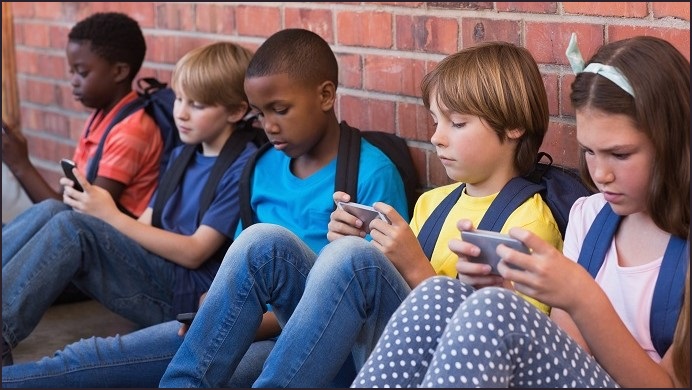The Victorian government will ban mobile phones for all students at state primary and secondary schools from 2020.
This follows the NSW government's decision to ban the use of mobile phones in primary schools from 2020.
Victorian Education Minister James Merlin said the ban aims at improving student well-being and learning outcomes.
“This will remove a major distraction from our classrooms, so that teachers can teach, and students can learn in a more focused, positive and supported environment,” Merlin said.
“Half of all young people have experienced cyberbullying. By banning mobiles we can stop it at the school gate.”
Federal Education Minister Dan Tehan said he welcomed the Victorian government’s decision.
"With this move from Victoria my hope is we will see other states and territories follow suit," Tehan said.
"It's very difficult for teachers to teach when they are trying to discipline against the constant use of mobile phones."
Around Australia
Other states tend to leave mobile phone policy decisions up to the schools.
Tasmania, for example, encourages a Bring Your Own Technology program for state schools which is designed to “increase [student] access to devices that assist learning both in and out of the classroom”.
BYO programs were cited by the Queensland Cyber-Bullying Taskforce in its September 2018 report as a reason not to ban mobile phones.
The report concluded that “banning mobile devices at school would not prevent cyberbullying”.
“A ban could concentrate unwanted behaviour in after-school hours and would do nothing to change the underlying causes of bullying and cyberbullying,” the report said.
“Nor would a ban change anti-social behaviour of students at school, or address the concern often raised in consultations, that cyberbullying follows students home.”
Mental load
Developmental psychologist and Associate Professor at the University of Melbourne, Terry Bowles, agreed that a mobile phone ban would not solve cyber bullying on its own.
“I think taking phones away will reduce bullying because it lessens the rate and frequency of communication, but it won’t necessarily reduce the impact or intensity of bullying,” Bowles said.
He went on to say that he agrees with Victoria’s decision, even though technologies can be beneficial for learning.
“Some technologies are as good a tool at stimulating learning as they are at stimulating distraction,” Bowles said.
“In the right hands, such media can be really enhancing of the experience and perception of learning, but that doesn’t mean it’s going to happen all the time.
“My major concern though would be to ask the question: why do we have to regulate these things?
“Schools have been experimenting with different ways of doing the same thing – I’m wondering why this has to be a policy from government.”










